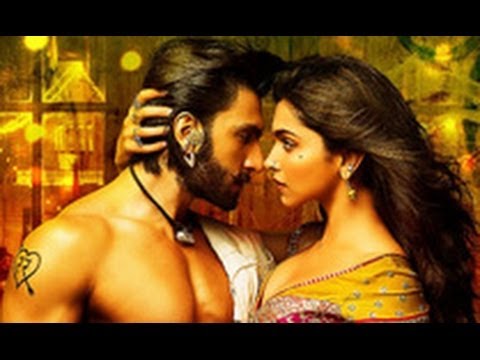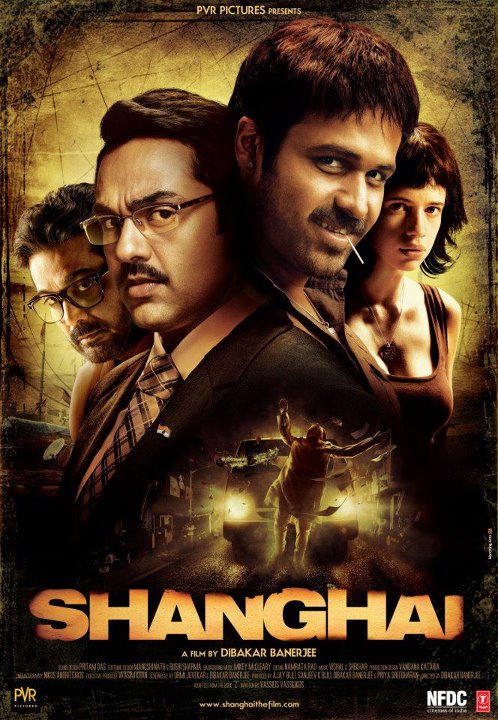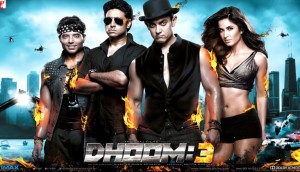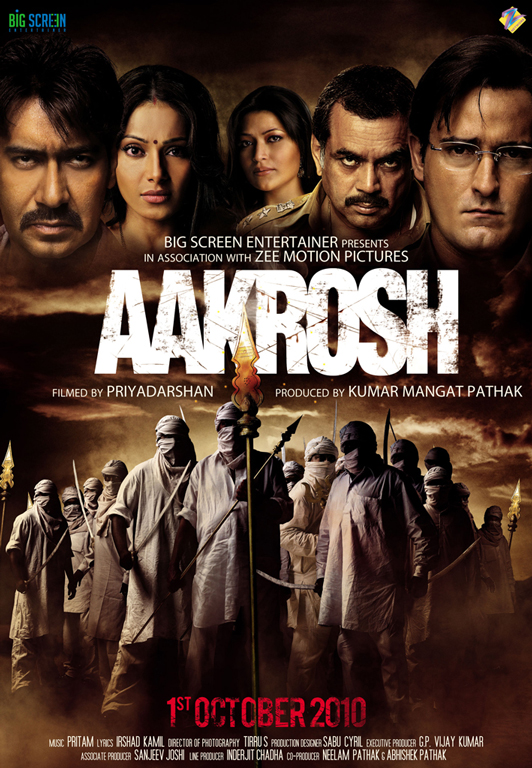Rom-coms are a pleasurable watch for those who are fond of this genre of cinema. But if you’ve watched a good number of rom-coms, you will realize how knowable and routine this genre can be. There’s a strong possibility that you may have an inkling of what the conclusion might be at the onset itself, but it all boils down to how differently each storyteller executes the subject matter, the chemistry between its lead cast, the sweet-sour-pungent moments entwined in the sequence of events.
In this fast-changing scenario, when the focus is on urban romance and metro-centric themes, parental opposition or clash of caste system have been cut off from the rule books. The conflict, generally, lies in ideological differences. Thinking individuals feel differently and react to situations differently as well. Resultantly, a lot of rom-coms are moving into the realistic or pragmatic zone these days.
Kareena and Imran team up after the much liked and admired EK MAIN AUR EKK TU. Although the pairing won its share of bouquets and brickbats in their first film together, what really draws your attention to GORI TERE PYAAR MEIN! is the fact that it’s promos promised a blend of urban and rural India. Will Punit Malhotra pull it off?
Sriram [Imran Khan] doesn’t value relationships, family or friends. At some point, Sriram begins to narrate the story of the crazy relationship he shared with Dia [Kareena Kapoor Khan]. His ex-girlfriend. A firebrand social activist who wanted to change the world. An attraction which was physical initially, but then got emotional and finally veered into complex territories, resulting in a clash of ideologies and mindsets, which drove them apart.
However, Sriram realizes that he is not over Dia and still loves her. But Dia has moved on and is now in a village in Gujarat called Jhumli. Sriram lands up in Jhumli to take his love back, but Dia refuses to return with him. Will Sriram be able to win back his love? Will he be able to bring about the change in Jhumli as well as in himself?
Two strangers meet. Fall in love. Part ways. Guy realizes she’s the one he wants to spend the rest of his life. He follows her to the heartland to woo her back… Although the premise of GORI TERE PYAAR MEIN! may bring back memories of MAINE PYAR KIYA, DILWALE DULHANIA LE JAYENGE, PYAAR KIYA TO DARNA KYA and the recent RAMAIYA VASTAVAIYA, the fact is there’s no disciplinarian/strict father or an authoritarian/controlling brother to win over, to start with. As a matter of fact, Punit Malhotra ensures he doesn’t borrow from the first two iconic films at all. GORI TERE PYAAR MEIN! is more of a coming of age movie with a focus on contemporary relationships and interactions.
The first hour of GORI TERE PYAAR MEIN! may give an impression that Punit Malhotra is back on familiar grounds [I HATE LUV STORYS, his directorial debut]: urban setting, wittiness and styling. But the movie wins you over as Imran starts narrating episodes involving Kareena and him. The film gathers momentum with every episode and you’re bowled by the simplistic charm the movie possesses at the close of first half [screenplay: Arshad Syed, Punit Malhotra]. The interactions between Imran and Shraddha are wonderful, while the marriage sequence is brilliant.
Punit does an about-turn in the second half, venturing into an unmarked terrain — a hamlet in Gujarat. The writing has its highs and lows in this hour; it’s absorbing at times, but not making much of an impact intermittently. The voyage to the culmination, which should’ve ideally been the icing on the cake, is erratic, although the film is back on track towards the closing moments. However, there’s no denying that the noteworthy moments outweigh the blemishes. You exit the auditorium with a feel-good sentiment and a smile on your face.
Punit Malhotra has matured in his second outing and the growth as a storyteller is obvious in a number of dramatic moments. His handling of relationships gives this film the essential edge. Punit’s flair for music was evident in his debut film and the soundtrack [Vishal-Shekhar] of GORI TERE PYAAR MEIN! is equally appealing. ‘Tooh’, ‘Chingam’ and the party track at the very outset are already popular with Gen X and you take a further liking for the songs when you watch them in context. Cinematography [Mahesh Limaye] captures the urban scenario as well as the rural setting proficiently. The background score by the ever-dependable Salim-Sulaiman is most apt.
Kareena Kapoor Khan is eye-catching in her appearance and aptitude, both. There’s this misapprehension that her character in GORI TERE PYAAR MEIN! is similar to the one she portrayed in JAB WE MET. Nope, not true! She’s sorted, strong-headed, extremely focused here, unlike the impulsive character she portrayed in that film. The similarity lies in the fact that Kareena gets ample opportunity to dazzle and leave a mark in the dramatic moments and she delivers a feisty performance indeed. Imran Khan springs a big, big surprise in this one. He is absolutely endearing in a role that appears intricate, to start with. His growth from a carefree youngster to a conscientious man, from a confused lad to a confident guy wins you over. He’s charming all through!
Shraddha Kapoor appears in an extended cameo. She is simply adorable. Anupam Kher is top notch in a role that has negative shades. Amongst the supporting cast, Sujata Kumar-Nizhalgal Ravi [as Imran’s parents] and Manoj Bakshi-Neelu Kohli [as Kareena’s parents] are wonderful. Vineet Kumar, in a brief role, is alright. Esha Gupta appears in a song.
On the whole, GORI TERE PYAAR MEIN! is a charming and refreshing coming of age film plus rom-com rolled into those 2.25 hours. The film maintains the right balance between amusement, hilarity and engaging moments. Recommended!
Rating: 3.5/5
https://www.bollywoodhungama.com/moviemicro/criticreview/id/584414










Gori Tere Pyaar Mein Movie Review by Komal Nahta
Dharma Productions’ Gori Tere Pyaar Mein! (UA) is a love story of a lazy, good-for-nothing, South Indian boy living in Bangalore and a hard-working social activist North Indian girl. Sriram Venkat (Imran Khan) is lazy and wears his heart on his sleeve. His father (Nizhalgal Raviee) is fed up of him and calls him a black spot on the family name. His marriage is fixed with Vasudha Natrajan (Shraddha Kapoor in a friendly appearance), a pretty Tamilian who loves a Sikh, Kamal (Tanvir Singh). Vasudha requests Sriram to decline her hand in marriage as she herself doesn’t have the guts to tell her parents about her love affair with a Sikh boy. But Sriram decides against taking up for her. The wedding preparations begin and soon, the celebrations start. Sriram and Vasudha get time to spend with one another, and Sriram uses the opportunity to tell her about his affair with Dia Sharma (Kareena Kapoor), the passionate social activist.
The affair between Sriram and Dia had started on a wrong note but the two soon hit it off very well. However, the romance had come to an end when Sriram had brokered the deal for the very plot of premium land on which Dia had wanted to build an orphanage. Vasudha makes Sriram realise that he still loves Dia as he remembers every little detail about their love story. Sriram had also kept a tortoise as a pet on Dia’s suggestion. Even as Vasudha is ready to sacrifice her love for Kamal, she, with all good intentions, prods Sriram to run away from the wedding and return to his true love, Dia. Sriram sees sense in Vasudha’s suggestion and runs away from his own wedding.
Dia is now in a village in Gujarat, fighting to have a bridge constructed over a river so that the lot of the villagers could be improved. Sriram, who hates village life, soon finds himself in the village, helping Dia and putting his architecture education to use in constructing the bridge. As the construction of the bridge begins, Dia is full of admiration for Sriram but only till she realises that he had done something behind her back, the consequences of which could be disastrous. Cracks develop in the relationship between Dia and Sriram and the latter leaves the village. The bridge construction work is stalled for various reasons.
What is it that Sriram had done for the blossoming love story to come to an end again? Does Sriram make amends? Does he return to his family in Bangalore after leaving the village? Or does he come back to the village? Does Dia call him back? Does the bridge get completed?
The story of a boy meeting a girl, the two falling in love, breaking up, and meeting again is not unusual. However, Arshad Syed and Punit Malhotra have peppered their story with interesting incidents in their screenplay so that the audience’s interest is kept alive. The first half is light and breezy with a number of fun moments for the youth and multiplex audience. From the city, the scene shifts to the village after interval and it is this portion which is not half as entertaining and engrossing. Of course, the writers have not sacrificed the fun element post-interval but the plot itself becomes a bit serious, which is too much in contrast with the racy, youthful first half. Also, the whole angle of constructing a bridge for the villagers seems a bit too huge a task for a social activist to take up single-handedly. Since the job is humongous, the solutions seem to be rather childish – whether by luring the minister with the proposal to name the bridge after his late mother or by bribing the collector, Lateshbhai (Anupam Kher).
Having said this, it must also be mentioned that it is the humour in the second half, which doesn’t let that part degenerate completely. Besides, there are some twists and turns in the drama, which surprise the audience and re-ignite their interest in the film at regular intervals. Also, the love story between Sriram and Dia remains interesting with the highs and lows that it passes through. Climax is truly weak.
Another point to be noticed is that the script has been very painstakingly written, without any loose ends. Early on in the drama, Sriram is taunted by his father about how nobody would want him as a role model, and Sriram tells him in the pre-climax that he has become a role model for someone; Sriram dissuades a tongue-tied Kamal from marrying Vasudha by posing rhetorical questions to him, but Kamal (who had not answered any questions at the time) clears his stand later in an sms to Vasudha, which she reads out to Sriram; Dia jokes with Sriram about collector Lateshbhai shaving the hair off his legs for the love of Sriram, and the collector does exactly that in the climax though he admits, he doesn’t know why Sriram asked him to do so; to a query from Sriram and Dia, the little boy in the village replies that he is not sure about what he would like to become when he grows up, but he reveals his aspirations to Sriram when he is leaving the bridge construction project midway; the Tamil custom of the bride’s father pleading with the groom to marry his daughter, just before the wedding ceremony, and the groom’s family prodding him on to run away from the marriage has first been established innocuously but used very engagingly at the time when Sriram is about to marry Vasudha. These interesting points in the script will not be lost on the audience. Dialogues, also penned by Arshad Syed and Punit Malhotra, are witty and very nice.
Imran Khan does a fine job and performs ably. He is entertaining enough as per the demands of the role. Kareena Kapoor looks gorgeous and glamorous and she also acts very effectively. Shraddha Kapoor stands her own in a friendly appearance and acts well. Nizhalgal Raviee (as Sriram’s father) and Sujatha Kumar (as Sriram’s mother) lend good support. Anupam Kher has his entertaining moments as collector Lateshbhai. Neelu Kohli (as Dia’s mother) and Manoj Bakshi (in the role of Dia’s father) provide able support. Anandi Ramachandran (as Vasudha’s mother), R. Balasubramaniam (as Vasudha’s father), Sreekant K. (in the role of Sriram’s elder brother, Jayram), Kalyani (as Sriram’s sister-in-law), Tanvir Singh (as Vasudha’s beloved, Kamal), Sachi Maker (as Joshna), Vallabh Gada (as Mohanbhai), Madhav Gogte (as Lateshbhai’s father), Kavish Majumdar (as Bhavtesh), Vineet Singh (as Mahato), Bhamini Oza (as Laali), Farzil Pardiwala (as Budhna), Jatin Sharma (as Rattan) and Feroz Bhagat (as Kirtibhai) leave their individual marks.
Punit Malhotra’s direction is effective. Despite a not-so-engaging screenplay after interval, his narrative style manages to keep the audience entertained. He has also extracted good work from out of his cast members. Vishal-Shekhar’s music is very good. The ‘Tooh’ and ‘Chewing gum chabaa ke’ songs are very popular. All the other songs are also appealing, their picturisations (Remo D’souza; ‘Dil duffer’ song choreographed by Jayesh) adding brilliantly to their overall appeal. Lyrics (by Anvita Dutt, Kausar Munir and Kumaar) go well with the film’s mood and characters. Salim-Sulaiman’s background music is extraordinary. Mahesh Limaye’s cinematography is splendid. Shashank Tere’s sets are lovely. Akiv Ali’s editing is sharp.
On the whole, Gori Tere Pyaar Mein! has an interesting first half but the post-interval portion, to a large extent, mars the impact because it does not go well with the first part. It has hardly anything for the single-screen cinema audience because the humour is more class-appealing. At the box-office, it will not be able to do much. If it still manages to sail safe, it will be because of recoveries from sale of satellite and audio rights. Its performance Overseas will be quite alright.
https://komalsreviews.wordpress.com/2013/11/22/gori-tere-pyaar-mein/
Gori Tere Pyaar Mein Movie Review by Rajeev Masand
Rating: 2
November 22, 2013
Cast: Imran Khan, Kareena Kapoor, Anupam Kher, Vineet Kumar Singh, Shraddha Kapoor
Director: Punit Malhotra
Men are from Mars and women are from Venus, but the characters in director Punit Malhotra’s Gori Tere Pyaar Mein are so flat-out uninteresting, you have to wonder if they’re from another galaxy altogether. Sriram (Imran Khan) is a rudderless Bangalore brat who’ll skip his aunt’s funeral to continue partying with his friends. Diya (Kareena Kapoor) is the kind of social activist that can exist only in a Karan Johar film, one who backs a new cause every day. Opposites attract, but it’s hard to figure out what draws this pair to each other. Then snotty Sriram’s love is tested when he follows Diya to a remote village in Gujarat, and volunteers to build a bridge that will help the lives of the locals.
You expect rom-coms to be frothy, escapist fluff, but Gori Teri Pyaar Mein specializes in a brand of emptiness that struggles to hold your attention. In one scene, Diya tells Sriram, “Don’t be so shallow” and that sentiment sums up this film in a nutshell. Sriram is a Tamil Brahmin boy and Diya, a Punjabi, so there are plenty stereotypes and even the classic dialogue, “Idli sirf sambhar ke saath acchi lagti hain, chholey ke saath nahin.” You can’t fathom what Diya sees in Sriram – on the very day they first meet, he suggests they have a quickie on the side, offering to cheat on his steady girlfriend.
Yet the larger problem here is that this rom-com doesn’t have the crackle and pop of an original romance, or even cleverly written comic lines. The first half has stray funny moments in the cultural stereotyping of Tamil weddings, when Sriram is set to marry the radiant Shraddha Kapoor in a special appearance. But the film sinks into a slush of melodrama and hammy acting in its second half, when Sriram locks horns with Anupam Kher, who offers an over-the-top performance as the scheming village collector determined to foil their bridge-building plan.
Malhotra gives us barely any genuine moments between Sriram and Diya. In fact, the writing is so trite that Diya offers to dye her gray strands as a “return gift” for Sriram committing to her cause. Perhaps to shake off that chocolate boy image, the film devotes ample screen time to Imran Khan’s chest hair, while the actor for the most part, although earnest, is left striking filmi poses, unable to inspire much affection for his singularly self-absorbed character. Kareena Kapoor, sincere despite the surface-level depth of her character, is completely wasted in the film. It’s a shame Imran shares more passion with Esha Gupta in a blink-and-miss song appearance than he does with his leading lady.
We’d have cared more about this mismatched couple had the makers invested in a sharper script. I’m going with a generous two out of five for Gori Tere Pyaar Mein. It’s as enjoyable as drinking a cup of tea that’s been left out in the cold.
Link